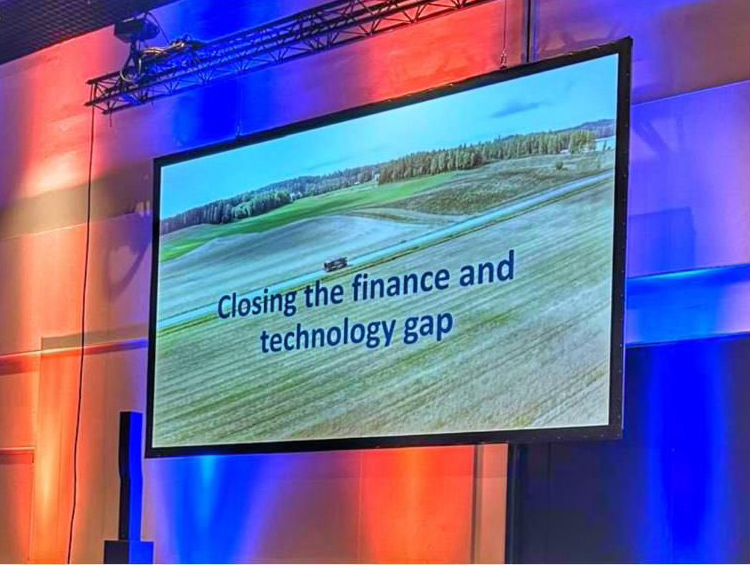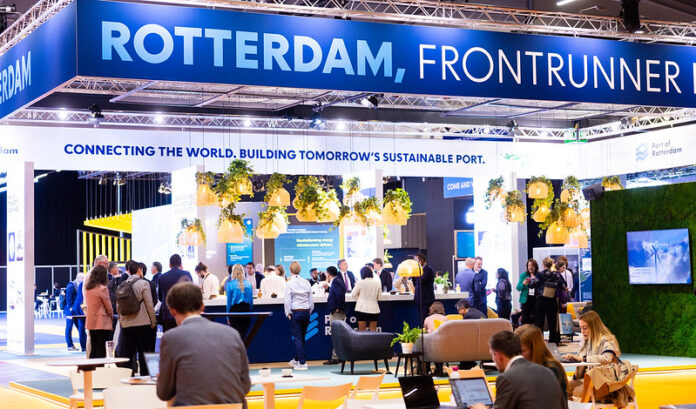India’s call to find new and innovative ways to finance the clean energy technology users has found an all round applause at World Energy Congress held at Rotterdam, Netherlands, earlier this week. Of course, it was also music to the ears of some of the clean energy technology innovator countries that are loathe to part with their state-of-the-art climate saving technologies to the developing economies, like India.
Summit after summit, climate talks have crashed on the issue of technology transfer. Developed economies of Europe are fretting over melting of ice caps and vanishing ski slopes, and developing nations such as China and India say it is now their chance to grow, West had its own in Industrial Revolution, and they can not shut down the overheated engines of economy fired by the fossil fuel. The two sides have remained torn apart.
India has come of age, in about last decade or so, from seeker of clean tech to a developer and now a financer. Of course it is still a long long way to match with the West where scientists have toiled for generations to hone finest climate friendly technologies. Obviously, no one would just part away the same to countries who have “done nothing” as they see it.

Nevertheless, there are a whole lot of incentives for buying an electric vehicle in India. There are purchase incentives, direct discount on the cost of the electric vehicle, coupons to fray later, discounted interest rates on loan, exemption on road tax, registration fee, income tax benefit, scrapping incentives and various others such as interest-free loans, top-up subsidies, etc. This is being implemented an umbrella scheme of Faster Adoption and Manufacturing of Electric (FAME) with initial budgetary allocation of 10,000 Crore ($1.2 billion).
Speaking at Rotterdam energy congress, Chairperson & Managing Director of Indian Renewable Energy Development Agency (IREDA) Pradip Kumar Das proposed allocating 4 to 5% of domestic pension or insurance funds into renewable energy bonds, to deepen the bond market and increase additional global and local investments. Das stressed agency’s commitment to making various renewable energy technologies bankable, including emerging ones like electric vehicles, green hydrogen, and the offshore wind.
In the panel discussion on “Scaling Up Climate Finance to Meet India’s Energy Transition Goals” Das emphasized the necessity of establishing a comprehensive green taxonomy – that is classification of investments in the entire spectrum of renewable energy and green technology area. This would enhance transparency in renewable energy sector issuances and attract investors with a commitment to sustainability.
As the largest pure-play green financing Non Banking Financing Company (NBFC) of the country, IREDA plays a pivotal role in expediting energy transition. Its efforts are noteworthy in facilitating financing for energy transition projects through utilization of innovative financial instruments to mitigate risks. It also encourages private sector to join the renewable energy efforts.

On 17 March last year, the Cabinet green-lighted the listing of IREDA on stock exchanges through an Initial Public Offer (IPO) by part-sale of Government’s stake in it and to raise funds through issue of fresh equity shares.
The IPO will help in unlocking the value of Government’s investment as well as provide an opportunity to the public to acquire stake in the national asset. It will also help the agency in raising a part of its capital for meeting growth plans without depending on the public exchequer, and improve governance through greater market discipline and transparency arising from listing requirements and disclosures.
IREDA is currently a wholly owned Government of India Category-I Mini-Ratna entity engaged in financing of renewable energy and energy efficiency projects. In line with the pledge made in Paris Accord on Climate Change, India has set the targets of achieving 175 GW of installed renewable capacity by 2022 and 500 GW by 2030. IREDA has a pivotal role to play in achieving these targets.
At the Ministerial Roundtable Conference, India’s Power Secretary Pankaj Aggarwal expanded on the complexity of managing energy transitions and stressed inclusive approaches. He spoke of the role of technology deployment and cooperation and said that balancing the trilemma of energy security, access, and sustainability remains crucial. The Power Secretary also told the Conference participants that developing countries do require support in accessing financing and clean technologies, to help them navigate the energy trilemma effectively.
India’s ambitious goal of achieving 500 GW of non-fossil-fuel energy capacity by the year 2030 positions it as a beacon of hope in the global fight against climate change. It is working on the lines of its avowed commitment of achieving Net Zero emissions by 2070 with rapid progress in renewable energy sector, Though India ranks third in fossil fuel burning (after China and the US), it is also fourth in world in terms of installed capacity for renewable energy.


